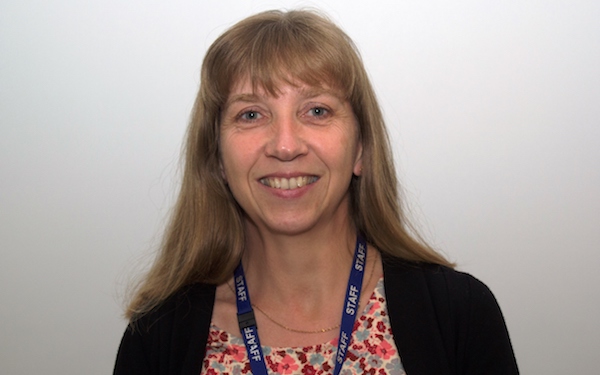By Catherine Watkins, principal social worker, West Sussex County Council
How can we best recognise the great work that social workers do? This is high on the agenda for us at West Sussex County Council.
Children’s social work is a tough profession to be in. Our public image isn’t great, demand for our services is higher than ever and what we do is complex and emotionally demanding.
But every day social workers do fantastic work and so, throughout my career, I’ve always wanted to do more to make our social workers know they are appreciated.
It was with this in mind that some of my West Sussex colleagues and I went to Community Care Live London in September to host a roundtable discussion on how best to celebrate good practice by social workers.
More than a ‘well done’
In the past year we’ve been doing a lot of work in this area in West Sussex.
We’ve created a pathway where good practice helps social workers progress. We have also reinforced the use of appreciative inquiry in supervision so that good work gets the attention it deserves rather than a simple ‘well done’.
We wanted to hear how social workers were celebrated elsewhere, explore some of the obstacles that stop good work being recognised and generate ideas for improvement.
It was a chance to share what we’re doing and learn from others so we can get even better at valuing our social workers because without a good workforce we are not going to be able to protect the children in our county.
Jar of Joys
One of my favourite ideas that came out from discussion was the team where a homemade trophy is used to recognise achievements. The social workers then keep the trophy on their desks until the next worker is celebrated.
More ideas from the celebrating social work roundtable
– Ensure good work isn’t forgotten by the time the next appraisal rolls around
– Senior staff should be visible and accessible
– Team away days at a spa
– Reward good work by letting staff to attend conferences
– Make sure all voices on the team are heard, not just the loudest voices
Another great approach we heard about was the Jar of Joys. I really liked this one. When this team got together they would write down their successes on slips of paper and then put them into the jar so that they could see the good work they do filling up the jar.
It’s such a quick and easy win. You could do it tomorrow – it costs almost nothing. All you need is a jar and some paper.
Recognising the smaller wins
The Jar of Joys is a great way to recognise the small yet vital pieces of work that can be overlooked. When it is busy, a social worker could do something small but really significant for a family that could get lost as they move onto the next case or decision.
Things like managing to support a family so their child goes to school every day for a week. Work like that is really significant for families but can go unrecognised when there are more visible achievements like avoiding an adolescent being accommodated during a crisis.
Deeper conversations
When it came to obstacles, a big theme in the discussion was that as social workers we are not good at accepting positive feedback.
We are often more comfortable saying when things have gone wrong and so when someone says well done it can feel tokenistic because the deeper conversations happen when something hasn’t gone well.
People want to know why they are doing well, what aspect of their work means they are doing well and how to build on it. I think the problem is that the conversations about good practice are shorter, which is one of the reasons we place so much importance on appreciative inquiry during supervision in West Sussex.
We’ve also tried to counter this issue through staff workshops where we devote time to celebrating and learning from each other’s successes.
A menu of options
Of course not every approach will work in everywhere.
For example, one social worker mentioned how managers at their charity recognise hard work by giving staff an extra day or half-day off. It would be really nice to do that but an extra day’s leave can have big ramifications that are harder to manage in a local authority.
This was another key point that emerged in the discussion. One size does not fit all. A homemade trophy might work for some teams but not for others, even within the same organisation.
That’s why at West Sussex we’re trying to develop a menu of options for practice managers and social workers to draw on and feed their own ideas into.
Share your ideas
Developing fresh ways to recognise good practice is an on-going process and an important one.
Social workers whose work is recognised and who learn from others’ good practice are going to be better at supporting children and families because they have a better understanding of what actions can make a positive difference.
So while the roundtable discussion may be over, we at West Sussex want the conversation it started to continue. So why not tell us what works in your organisation or share your own ideas with us?
I’ll be sharing ideas we have in West Sussex, including some from our next staff workshop on 9 November, and retweeting your ideas on Twitter so join the conversation @PCFSWWestSussex.




 Facebook
Facebook X
X LinkedIn
LinkedIn Instagram
Instagram